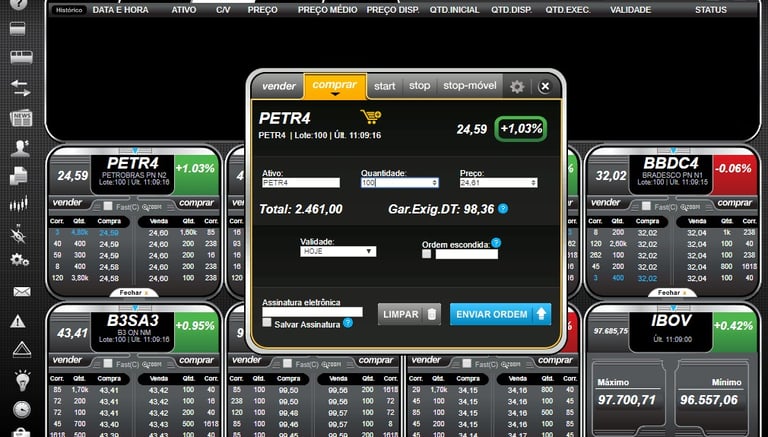
Home Broker: What It Is, How It Works, and How to Invest Safely
2 min read
Introduction
With the growing digitalization of financial services, investing in the stock market has become more accessible than ever before. One of the key tools enabling this shift is the home broker—an online platform that allows investors to buy and sell financial assets directly over the internet.
But what exactly is a home broker?
How does it work, and what precautions should you take to invest safely?
In this article, you’ll learn everything you need to know about home brokers: how they work, practical tips for investing more effectively, key advantages and disadvantages, fun facts, and potential risks. Let’s dive in!
What Is a Home Broker?
A home broker is a digital platform provided by brokerage firms that allows investors to buy and sell assets on the stock exchange independently—without needing to call or visit a broker in person. Through the platform, you gain direct access to the trading environment of B3 (the Brazilian Stock Exchange) via the internet.
Some of the main assets you can trade include:
Stocks
Real Estate Investment Funds (FIIs)
Treasury Bonds (Tesouro Direto)
BDRs (Brazilian Depositary Receipts of foreign stocks)
ETFs (Exchange Traded Funds)
Options and derivatives
How Does a Home Broker Work?
Once you open an account with a licensed brokerage, you gain access to the home broker.
The platform shows real-time quotes and lets you place buy and sell orders with just a few clicks.
Here’s how it works:
Sign up with a brokerage
Transfer money to your investment account via TED or PIX
Access the home broker via web or app
Select the asset you want and place a buy or sell order
Monitor your portfolio and returns
Advantages of Using a Home Broker
Autonomy and speed: You control when and how to invest
Real-time access to the financial markets
Low operational costs: Many brokers offer commission-free trades
Analytical tools: Charts, news, and data to support your decisions
Disadvantages and Risks
Despite the convenience, investing through a home broker requires care. Here are some of the main risks:
Lack of knowledge: Investing blindly can lead to losses
Market volatility: Returns in variable income are not guaranteed
Emotional investing: Acting out of fear or greed can harm performance
Cybersecurity risks: Use strong passwords and enable two-factor authentication
Fun Facts About Home Brokers
The first home broker in Brazil launched in 1999
Today, over 5 million Brazilians use online platforms to invest
You can build an entire investment portfolio using just digital tools—no paperwork or in-person meetings needed
Tips for Successful Investing with a Home Broker
Start with education: Learn the basics of fixed income, variable income, and your investor profile
Set clear financial goals: Define your short-, medium-, and long-term objectives
Diversify your portfolio: Don’t put all your money into one asset
Use demo or simulator modes: Practice before using real money
Stay disciplined: Monitor your portfolio, but avoid excessive tinkering
Watch out for hidden fees: Even brokers with zero commissions may charge other fees
How to Choose a Good Home Broker
When selecting a broker with a reliable home broker platform, consider:
User-friendly interface
Available tools and features
Fees and operational costs
Market reputation
Customer service and support
Examples of Brazilian Brokers with Home Broker Platforms
XP Investimentos
Clear Corretora
Rico Investimentos
ModalMais
BTG Pactual Digital
Inter
NuInvest (formerly Easynvest)
Conclusion
A home broker is an excellent tool for those who want to take their first steps in the world of investing with autonomy and convenience.
However, success in the market requires knowledge, planning, and discipline.
Technology is here to help—but the responsibility for your decisions rests entirely with you.
So, take the time to study, plan carefully, and invest wisely.
Your financial future will thank you!



